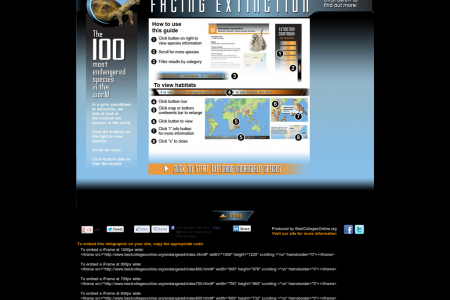
Can Vegetarianism Save The Planet?
CAN VEGETARIANISM SAVE THE PLANET? The livestock industry is a huge contributor to our global carbon footprint. Globally, it's responsible for The main sources of these emissions are: 14.5% of human-induced greenhouse gas emissions. 45% Feed production and processing 39% Digestive processes from ruminant animals 10% Manure decomposition Global meat consumption and greenhouse gas emissions are rising - but would switching to a vegetarian diet help ease our carbon footprint? GHG emissions (kg CO2e/kg) Compared to other food products, meats are more carbon intensive to produce, and red meats, by far, are the largest offenders. Includes emissions from primary production up to transport to the regional distribution centre Sheep/goat 14.61 P Beef 12.14 Fish 5.36 MEAT FRUIT/VEG Pig 4.45 FISH OTHER FOODS Tomatoes 3.79 *Imported to the UK Turkey 3.76 Rice* 3.50 Barley 3.24 Eggs 2.94 Chicken 2.84 1.94 Asparagus 1.55 Green beans In the UK, only 2% of the population are vegetarian and less than 1% are vegan. 1.19 Milk 1.15 Lettuce 1.06 Lentils* 1 Mushrooms 0.77 Chickpeas* 0.37 Cereal 0.35 Carrots 0.32 Apples 0.26 Potatoes So what would happen if everyone stopped eating meat? WHAT WOULD HAPPEN TO OUR LAND? Livestock accounts for more than half of all land used for food production. 26% of the planet's ice- free surface is used for grazing. of the planet's ice-free surface is used for crops. animal If the world turned vegetarian: According to researchers at the Netherlands Environmental Assessment Agency: Pasture areas would be reduced by 80% (or 2,700 Mha*). *Mha = mega hectare (1000,000 hectares) And if the world turned vegan: Pasture areas would be reduced by 100% (or 3,200 Mha). However, this would be offset by 2 Mha of arable land that would be needed for direct crop consumption. WHAT WOULD HAPPEN TO OUR WATER SUPPLY? It's estimated that 8% of our global water supply is used for growing crops to feed livestock. 2,422 Gm /year** the water footprint of global livestock production (during the period 1996-2005). 29% 8% This makes up 29% of the total water footprint of agricultural production. **Gm3 = cubic gigametre (1,000,000,000 cubic metres) Water footprint of foods compared: WATER FOOTPRINT PER TONNE (M³/TONNE) Veg 322 Fruits 962 Milk 1,020 Pulses Roots 4,055 387 Cereals 1,644 Chicken 4,325 Beef 15,415 Eggs 3,265 Feed accounts for 98% of an animal's water Sheep 8,763 footprint - beef cattle require the most feed. Pig 5,988 WATER FOOTPRINT PER GRAM OF PROTEIN (LITRE/G PROTEIN) Vegetables 26 Starchy Roots 31 Eggs 29 Pig 57 Chicken 34 Fruits 180 Sheep 63 In terms of protein per litre, fruits are the most water intensive. Beef 112 Cereals Pulses Milk 21 19 31 The UK alone uses 1.43 billion m' of Brazilian water To get the same amount of protein in pulses from beef, you need x6 the volume of water. a year though imported soy. Yet 40 million Brazilian families have no access to supplies of clean drinking water. Shifting to a plant based diet can decrease pressure on the world's water resources. WHAT WOULD HAPPEN TO OUR CARBON FOOTPRINT? Individually, vegetarians and vegans have lower carbon footprint compared to meat eaters. Carbon footprint by diet: MEAT-EATERS High (100+ grams/day) (50-99 grams/day) (0-50 grams/day) Medium Low Fish-eaters Vegetarians Vegans 7.19 5.63 4.67 3.91 3.81 2.89 Greenhouse gas emissions (kg CO, per 2,000 kcal daily diet) (per day) According to researchers, global vegetarianism by 2050 would result in a: 17% 21% 24% reduction in N,0 (nitrous oxide) reduction in CH, (methane) reduction in Co, this figure includes the offset of CO, from vegetation growth from reduced fertilisers, crop waste and storage systems from reduced enteric fermentation used for animal waste and animal waste WHAT WOULD HAPPEN TO OUR HEALTH? In the UK people tend to consume more protein than they need. 110g a day: the average amount of meat UK adults consume 70g a day: the average amount of red and processed meat UK adults consume Research shows a link between Daily protein consumption: • Recommended • Actual red meat and mortality. Regularly eating: 85g of unprocessed red meat - 13% increased risk of mortality 56g 88g 85g of processed meat - 20% increased risk of mortality 45g 64g A vegetarian diet, where protein is gathered from mainly plant-based sources, will see the population living healthier and longer lives. By 2050 the demand for meat is expected to have grown by 73% from its 2010 levels. This reflects the growing world population and income levels in developing countries. We need to change - not only what we eat, but also how we produce it. Vegetarianism is just one simple solution to an ever-more complex problem. Sources Check out the sources behind the graphic here: arbtech.co.uk/can-vegetarianism-save-planet-infographic Produced by ARBTECH
Can Vegetarianism Save The Planet?
Designer
Inside OnlineSource
https://arbt...fographic/Category
EnvironmentGet a Quote









